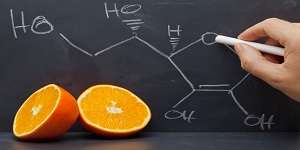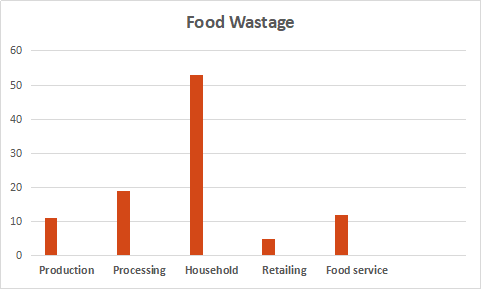
Food Chemistry 2018

Theme: Accelerating Research & Innovation in Food Chemistry & Technology
Food Chemistry 2018 welcomes attendees, presenters, and exhibitors from all over the world to Madrid, Spain. We are glad and honored to invite you to attend this prestigious “International conference on Food chemistry and Technology. Food Chemistry 2018 has been designed in an interdisciplinary manner with a multitude of tracks to choose from every segment and provides you with a unique opportunity to meet up with peers from both industry and academia and establish a scientific network between them. We cordially invite all concerned people to come join us at our event and make it successful by your participation.
Meetings International (Meetings Int.) is a global leader in producing high quality conferences, meetings, workshops and symposia in all major fields of science, technology and medicine. Since its inception, Meetings Int. has been associated with national and international associations, corporations and high level individuals, dedicated to host world class conferences and events. Meetings Int. supports broad scope research and peer review at a broad range of specialists around the world.
This conference brings together a unique and international mix of experts like academicians, scientists, and business professionals, general public, current and prospective food technologist to share information and ideas about the development of food quality and food safety. Attendees will learn about several topics relevant to food technology and food chemistry. Anyone with an interest in food chemistry, food microbiology, food bio-technology and dairy technology including prospective growers, researchers, teachers, students or agency persons with jobs related to food chemistry and technology can attend the conference.
This Food Chemistry Conference will offer an exciting scientific program, composed of state-of-the-art plenary lectures, including Face-to-Face Workshops and abstract-driven sessions presenting the latest research in the field of Food technology. Furthermore, this Food technology Conference will also provide an opportunity for younger investigators to actively participate and present their research.
Food Chemistry Conference | Food Technology Conference | Food Science Conference | Food Conference | Food Microbiology Conference | Meetings International
Track 1: Food Chemistry
It is the study of chemical processes and interactions of all biological and non-biological components of foods. Food Chemistry is concerned with analytical, biochemical, chemical, physical, nutritional, and toxicological aspects of foods and food ingredients. It also involves the study and development of food additives that can be used to preserve the food. It overlaps with biochemistry in that it deals with the food components. Food chemistry can be applied in the analysis of dietary content to monitor or improve nutrition, or the determination of levels of contaminants to ensure Food Safety.
Related conferences:
International conference on Food chemistry and Technology November 05-07, 2018, Berlin, Germany; International conference on Agriculture and Food chemistry July 23-24, 2018, Rome, Italy; Global Summit on Nutritional Science and Food Chemistry May 24-25,2018, Valencia, Spain; International Conference on Food Safety and Regulatory Measures, June 11-13, 2018, Barcelona, Spain; International Conference on Food Microbiology November 29-30, 2018, Dublin Irelend; International Conference on Food Processing and Analysis October 11-13, 2018, Moscow, Russia
Food Chemistry Conference | Food Technology Conference | Food Science Conference | Food Conference | Food Microbiology Conference | Meetings International
Track 2: Food Science and Technology
Food Science and Technology involves the application of basic sciences and engineering to study the physical, chemical, and biochemical nature of foods and the principles of food processing. Whereas Food Technology deals with the production processing that makes the food. Food technologists apply their knowledge of food science to operate, design and manage the facilities and equipment involved in the processing and storage of foods.
Related conferences:
International conference on Food chemistry and Technology November 05-07, 2018, Berlin, Germany; International conference on Agriculture and Food chemistry July 23-24, 2018, Rome, Italy; Global Summit on Nutritional Science and Food Chemistry May 24-25,2018, Valencia, Spain; International Conference on Food Safety and Regulatory Measures, June 11-13, 2018, Barcelona, Spain; International Conference on Food Microbiology November 29-30, 2018, Dublin Irelend; International Conference on Food Processing and Analysis October 11-13, 2018, Moscow, Russia
Food Chemistry Conference | Food Technology Conference | Food Science Conference | Food Conference | Food Microbiology Conference | Meetings International
Track 3: Food Biochemistry and Food Bioprocessing
Food biochemistry is concerned with the breakdown of food in the cell as a source of energy. Each cell is a factory that converts the nutrients of the food one eats to energy and other structural components of the body. The amount of energy that these nutrients supply is expressed in Calories (kilocalories). Food Bioprocessing have become widely used in several fields of commercial biotechnology, such as production of enzymes (used, for example, in food processing and waste management) and antibiotics
Related conferences:
International conference on Food chemistry and Technology November 05-07, 2018, Berlin, Germany; International conference on Agriculture and Food chemistry July 23-24, 2018, Rome, Italy; Global Summit on Nutritional Science and Food Chemistry May 24-25,2018, Valencia, Spain; International Conference on Food Safety and Regulatory Measures, June 11-13, 2018, Barcelona, Spain; International Conference on Food Microbiology November 29-30, 2018, Dublin Irelend; International Conference on Food Processing and Analysis October 11-13, 2018, Moscow, Russia
Food Chemistry Conference | Food Technology Conference | Food Science Conference | Food Conference | Food Microbiology Conference | Meetings International
Track 4: Food Nanotechnology
Food Nanotechnology is a zone of rising interest and opens up an entire universe of new conceivable outcomes for the sustenance business. Nanotechnology involves the manipulation of microscopic matter that ranges from 1 to 100 nm in size. Because food and water are naturally made up of particles that are on the nanometer scale, engineered nanoparticles are able to penetrate these products easily based on their similar properties. These particles can act as a whole unit by performing similar transportation functions that prove useful in almost every industry, particularly involving Food Products.
Related conferences:
International conference on Food chemistry and Technology November 05-07, 2018, Berlin, Germany; International conference on Agriculture and Food chemistry July 23-24, 2018, Rome, Italy; Global Summit on Nutritional Science and Food Chemistry May 24-25,2018, Valencia, Spain; International Conference on Food Safety and Regulatory Measures, June 11-13, 2018, Barcelona, Spain; International Conference on Food Microbiology November 29-30, 2018, Dublin Irelend; International Conference on Food Processing and Analysis October 11-13, 2018, Moscow, Russia
Food Chemistry Conference | Food Technology Conference | Food Science Conference | Food Conference | Food Microbiology Conference | Meetings International
Track 5: Food Structure, Flavour & Quality
The determination of food structure and textural properties by instrumental methods is particularly important during product development to rapidly optimize product formulation. A wide range of analytical methods has been developed to evaluate the physicochemical and sensory properties of foods. Food Flavour determined primarily by the chemical senses of taste and smell. The "trigeminal senses", which detect chemical irritants in the mouth and throat, as well as temperature and texture, are also important to the overall gestalt of flavor perception. Food quality is an important food manufacturing requirement, because food consumers are susceptible to any form of contamination that may occur during the manufacturing process. Food quality also deals with product traceability, (e.g., of ingredient, and packaging suppliers), should a recall of the product be required. It also deals with labeling issues to ensure there is correct ingredient and nutritional information
Related conferences:
International conference on Food chemistry and Technology November 05-07, 2018, Berlin, Germany; International conference on Agriculture and Food chemistry July 23-24, 2018, Rome, Italy; Global Summit on Nutritional Science and Food Chemistry May 24-25,2018, Valencia, Spain; International Conference on Food Safety and Regulatory Measures, June 11-13, 2018, Barcelona, Spain; International Conference on Food Microbiology November 29-30, 2018, Dublin Irelend; International Conference on Food Processing and Analysis October 11-13, 2018, Moscow, Russia
Food Chemistry Conference | Food Technology Conference | Food Science Conference | Food Conference | Food Microbiology Conference | Meetings International
Track 6: Additives and Enzymes
Food additives are the substances that are generally added to preserve the flavor or enhance the taste, appearance, color or other qualities. The additives can be of natural or synthetic type. The additives are divided into a broad spectrum of acidity regulators, anticaking agents, foaming agents, colorants, antioxidants, bulking agents, humectants, flavor enhancers, emulsifying agents, flour enhancers, thickeners, sweeteners, stabilizers etc. The Adequate Daily Intake (ADI) of additives is standardized and the numbering is done to follow the proper guidelines. The food allergen information is also included in labelling standards.
Related conferences:
International conference on Food chemistry and Technology November 05-07, 2018, Berlin, Germany; International conference on Agriculture and Food chemistry July 23-24, 2018, Rome, Italy; Global Summit on Nutritional Science and Food Chemistry May 24-25,2018, Valencia, Spain; International Conference on Food Safety and Regulatory Measures, June 11-13, 2018, Barcelona, Spain; International Conference on Food Microbiology November 29-30, 2018, Dublin Irelend; International Conference on Food Processing and Analysis October 11-13, 2018, Moscow, Russia
Food Chemistry Conference | Food Technology Conference | Food Science Conference | Food Conference | Food Microbiology Conference | Meetings International
Track 7: Food Industry and Health Hazard
The food industry is a complex, global collective of diverse businesses that supply most of the food consumed by the world population. Only subsistence farmers, those who survive on what they grow, can be considered outside of the scope of the modern food industry. Biological, physical or chemical agents in food that are reasonably likely to cause illness or injury in the absence of their control.' There are three main types of food safety hazards: Biological Hazards caused by bacteria, viruses or parasites that are present in air, food, water, soil, animals and humans.
Related conferences:
International conference on Food chemistry and Technology November 05-07, 2018, Berlin, Germany; International conference on Agriculture and Food chemistry July 23-24, 2018, Rome, Italy; Global Summit on Nutritional Science and Food Chemistry May 24-25,2018, Valencia, Spain; International Conference on Food Safety and Regulatory Measures, June 11-13, 2018, Barcelona, Spain; International Conference on Food Microbiology November 29-30, 2018, Dublin Irelend; International Conference on Food Processing and Analysis October 11-13, 2018, Moscow, Russia
Food Chemistry Conference | Food Technology Conference | Food Science Conference | Food Conference | Food Microbiology Conference | Meetings International
Track 08: Dairy Science and Technology
Dairy technology deals with the processing of milk and development of milk products. It includes all the steps from platform tests, handling, equipment used storage, packaging, distribution till the transportation. As the risk of microbial contamination is high in case of milk and milk products, the extension of shelf life is the challenging task. The major milk products include cheese, butter, ghee, curd, buttermilk, yoghurt paneer, condensed milk, casein, ice cream skimmed milk, toned milk, double toned milk etc.
Related conferences:
International conference on Food chemistry and Technology November 05-07, 2018, Berlin, Germany; International conference on Agriculture and Food chemistry July 23-24, 2018, Rome, Italy; Global Summit on Nutritional Science and Food Chemistry May 24-25,2018, Valencia, Spain; International Conference on Food Safety and Regulatory Measures, June 11-13, 2018, Barcelona, Spain; International Conference on Food Microbiology November 29-30, 2018, Dublin Irelend; International Conference on Food Processing and Analysis October 11-13, 2018, Moscow, Russia
Food Chemistry Conference | Food Technology Conference | Food Science Conference | Food Conference | Food Microbiology Conference | Meetings International
Track 09: Food Microbiology & Fermentation Technology
The food microbiology is the study of the microorganisms that give both benefits and implications on food. The pathogen may be divided into broad spectrum of bacteria, viruses, molds, yeasts etc. These cause changes in the appearance, texture, color and odor. The microbial damage is caused by both intrinsic factors and extrinsic factors. The extrinsic factors include temperature, relative humidity, concentration of gases in the environment etc. On the other hand, there are various beneficial microorganism which on the process of fermentation results in various products. Industrial fermentation is the intentional use of fermentation by microorganisms such as bacteria and fungi as well as eukaryotic cells like CHO cells and insect cells, to make products useful to humans.
Related conferences:
International conference on Food chemistry and Technology November 05-07, 2018, Berlin, Germany; International conference on Agriculture and Food chemistry July 23-24, 2018, Rome, Italy; Global Summit on Nutritional Science and Food Chemistry May 24-25,2018, Valencia, Spain; International Conference on Food Safety and Regulatory Measures, June 11-13, 2018, Barcelona, Spain; International Conference on Food Microbiology November 29-30, 2018, Dublin Irelend; International Conference on Food Processing and Analysis October 11-13, 2018, Moscow, Russia
Food Chemistry Conference | Food Technology Conference | Food Science Conference | Food Conference | Food Microbiology Conference | Meetings International
Track 10: Food Preservation, packaging & Labelling
Food preservation prevents losses and wastage of nutrients from foods and allows people to benefit from the nutrient concentrated foods. Enormous reduction in spoilage and wastage of perishable foods builds up country's economy by making more food available to the people at affordable prices. A package provides protection, tampering resistance, and special physical, chemical, or biological needs. It may bear a nutrition facts label and other information about food being offered for sale.
Related conferences:
International conference on Food chemistry and Technology November 05-07, 2018, Berlin, Germany; International conference on Agriculture and Food chemistry July 23-24, 2018, Rome, Italy; Global Summit on Nutritional Science and Food Chemistry May 24-25,2018, Valencia, Spain; International Conference on Food Safety and Regulatory Measures, June 11-13, 2018, Barcelona, Spain; International Conference on Food Microbiology November 29-30, 2018, Dublin Irelend; International Conference on Food Processing and Analysis October 11-13, 2018, Moscow, Russia
Food Chemistry Conference | Food Technology Conference | Food Science Conference | Food Conference | Food Microbiology Conference | Meetings International
Track 11: Food Safety, Security and Control
The scientific discipline which helps in preventing the food borne illness through the proper handling, preparation and storage is food safety. The food poisoning occurs by the transmission of pathogens through food. HACCP principles act as a major source in maintaining the safety standards of the food industries. Food Security is a condition in which all individuals, consistently, have physical, social and monetary access to adequate sheltered and Nutritious Nourishment that meets their dietary and sustenance inclinations for a dynamic and sound life. Sustenance security fuses a measure of versatility to future interruption or inaccessibility of basic nourishment supply because of different hazard factors including dry seasons, shipping disturbances, fuel deficiencies, monetary flimsiness, and wars.
Related conferences:
International conference on Food chemistry and Technology November 05-07, 2018, Berlin, Germany; International conference on Agriculture and Food chemistry July 23-24, 2018, Rome, Italy; Global Summit on Nutritional Science and Food Chemistry May 24-25,2018, Valencia, Spain; International Conference on Food Safety and Regulatory Measures, June 11-13, 2018, Barcelona, Spain; International Conference on Food Microbiology November 29-30, 2018, Dublin Irelend; International Conference on Food Processing and Analysis October 11-13, 2018, Moscow, Russia
Food Chemistry Conference | Food Technology Conference | Meeting International | 2018 |2019 | Food Science Conference
Track 12: Herbs, Spices & Essential Oils
Spices are used for flavour, colour, aroma and preservation of food or beverages. Spices may be derived from many parts of the plant: bark, buds, flowers, fruits, leaves, rhizomes, roots, seeds, stigmas and styles or the entire plant tops. The term ‘herb’ is used as a subset of spice and refers to plants with aromatic leaves. Essential oils are liquid products of steam or water distillation of plant parts (leaves, stems, bark, seeds, fruits, roots and plant exudates).
Related conferences:
International conference on Food chemistry and Technology November 05-07, 2018, Berlin, Germany; International conference on Agriculture and Food chemistry July 23-24, 2018, Rome, Italy; Global Summit on Nutritional Science and Food Chemistry May 24-25,2018, Valencia, Spain; International Conference on Food Safety and Regulatory Measures, June 11-13, 2018, Barcelona, Spain; International Conference on Food Microbiology November 29-30, 2018, Dublin Irelend; International Conference on Food Processing and Analysis October 11-13, 2018, Moscow, Russia
Food Chemistry Conference | Food Technology Conference | Food Science Conference | Food Conference | Food Microbiology Conference | Meetings International
Introduction:-
Food Chemistry is the branch of food science that deals with study of chemical changes that undergoes during the processing, handling, storage of food. Food chemistry is closely related with the biochemistry, Microbiology, Molecular biology etc. The major aim of food chemistry is to understand and prevent the undesirable changes of food when it exposed to the severe environmental conditions and to improve the nutrients and quality of food. Food Chemistry is an overview of chemistry related to food sciences, such as food analysis, microbiology, nutrition, and food engineering etc. The study of chemistry probably dates from the first millennium AD and the route to modern food chemistry can be traced through the alchemist philosophies of medieval China, India and Europe, although it took about a thousand years for chemistry to grow into a coherent and inclusive decipline.
According to market research report, “Global Organic Food Market By Product Type, By Region, Competition Forecast and Opportunities, 2011 – 2021”, global organic food market is projected to grow at a CAGR of over 14%, during 2016-2021, on account of rising disposable income coupled with growing awareness among consumers about health benefits of consuming organically produced food. Additionally, rising internet penetration, aggressive marketing strategies by major companies and easy availability of these food products on the back of robust distribution network are projected to boost sales of organic food across the globe. In 2016, about 43.7 million hectares of agricultural land was under organic cultivation, which was managed by over 2.3 million producers across the globe. Moreover, leading players operating in global organic food market are offering these products in environment friendly packaging to lure consumers.
Scope and Importance:
Food chemistry deals with nature of chemical substance and transformation that takes place during the severe environmental conditions, processing, utilization etc. These transformation leads to the energetic changes in the body. Any imbalance and abnormality in the Chemical constituents like Carbohydrates, vitamins, minerals, water etc leads to the diseased rate in the body. So, the knowledge of Biochemistry applied in diagnosis, prevention and treatment of these diseases. Food Chemistry directing the food material to chemical observations. Food chemistry utilize many procedures and Analytical tools so that they change the food with healthy, nutritious, safe food materials with high commercial value. An understanding the chemical transformation and processes has made food substances available on a global scale. The basic principle under food chemistry is to create the methods that makes it possible to harvest, preserve, process and prepare the food with high nutritional value for human consumption and increase the shelf life of food products without causing any diseases to the human.
Increasing average household annual spending on food, rising awareness about health benefits associated with organic foods, greater accessibility of these products through small to medium scale retailers, continuous development in supply chain network and implementation of initiatives to encourage farmers to switch to organic farming are projected to fuel organic food sales across the globe.
Food Additives:
Nowadays many food items that contains Food Additives to improve Flavour, texture, taste, appearance etc. Some of theses additives that cause severe health problems and death. Example of some additives that Should be avoid in food:
|
Name of Additives |
Side effects |
|
Aspartame |
Mental confusion, Nausea ,Lymphoma. |
|
HFCS |
Diabetes ,Increased CholestraL level |
|
Monosodium Glutamate |
Eye damage, obesity, Tissue Damage |
|
Sodium Sulfites |
Breathing Problems ,Cardiac Arrest |
|
Sulfur Dioxide |
Cardio vascular diseases ,Bronchitis |
Food and Nutritional deficiency diseases:
Food is the substance that composed of chemical constituents like Carbohydrates, Vitamins ,Minerals, Fats, Proteins etc which is consumed by the human for nutrition ,growth and development. If any imbalance in the uptake of these nutrients leads to diseases called Nutritional Deficiency diseases .Deficiency in these nutrients caused some diseases in Children and results in death.
- Rickets
- Scurvy
- Beri Beri
- Night Blindness
- Goitre
- Iron Deficiency Anaemia
- Kwashiorkor
- Depression
- Osteoporosis
Food Waste:
Food waste is the food that is discarded or uneaten. Food waste that occurs during the household activities, processing, production ,retailing etc.

Universities Related to Food Chemistry
- University of Alberta, Canada
- Dalhousie university, Canada
- University of Saskatchewan, Canada
- University of Guelph, Canada
- McGill University, Canada
- University of British Columbia, Canada
- Iowa state university ,USA
- University of Missouri, USA
- University of Kentucky, USA
- Mississippi State of University, USA
- University of Tennessee, USA
- Colorado State University, USA
- Massey University, New Zealandâ€
Food Chemistry and Food safety centres:
- Canadian Food Inspection Agency (CFIA), Canada
- Guelph Food Technology Centre, Canada
- U.S. Food and Drug Administration (FDA), USA
- Centre for Food Safety and Applied Nutrition (CFSAN), USA
- Ministry of Food and Drug Safety (MFDS), South Korea
- Ministry of Health (MOH), Malaysia
- Food Safety and Quality Division, Malaysia
- Minister for Food Safety, New Zealand
- New Zealand Food Safety Authority (NZFSA)
- Joint Expert Committee on Food Additives, USA
Reference:-
- http://www.ibisworld.com/industry/nutritionists-dietitians.html
- http://www.strategyr.com/MarketResearc/Sports_and_Fitness_Nutrition_Supplements_Market_Trends.asp(global industry analyst)
- Global Nutrition and Supplements Market: History, Industry Growth, and Future Trends by PMR release/2015/01/27/700276/10117198/en/Global-Nutrition-and-Supplements-Market-History-Industry-Growth-and-Future-Trends-by-PMR.html)
- Food Chemistry
- Food Science and Technology
- Food Biochemistry and Food Bioprocessing
- Food Nanotechnology
- Food Structure, Flavour & Quality
- Additives and Enzymes
- Food Industry and Health Hazard
- Dairy Science & Technology
- Food Microbiology & Fermentation Technology
- Food Preservation, packaging & Labelling
- Food Safety, Security and Control
- Herbs, Spices & Essential Oils
- Journal of Food and Nutrition Disorder
4 Organizing Committee Members
2 Renowned Speakers
Mingruo Guo
Professor University of Vermont
Burlington
USA
Hanee M. Al-Dmoor
Director, Al-Balqa Applied University & Scientific Food Center
Jordan























































































































